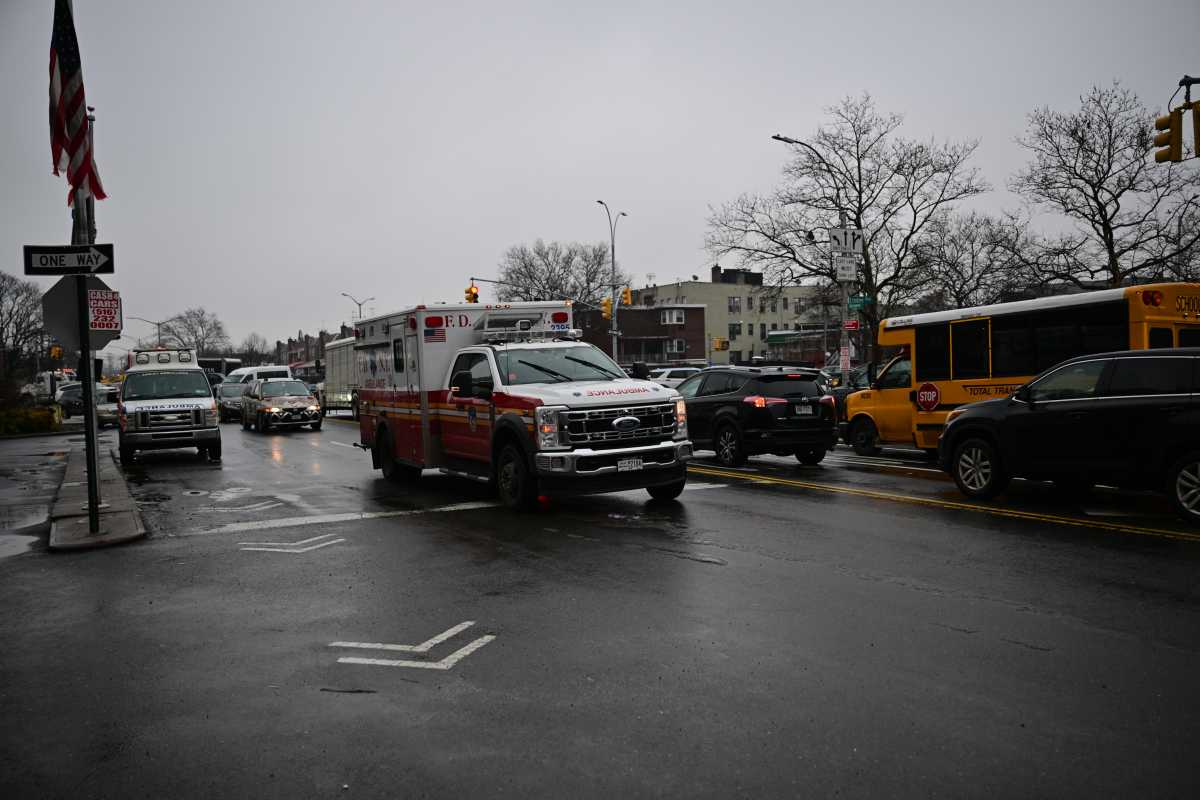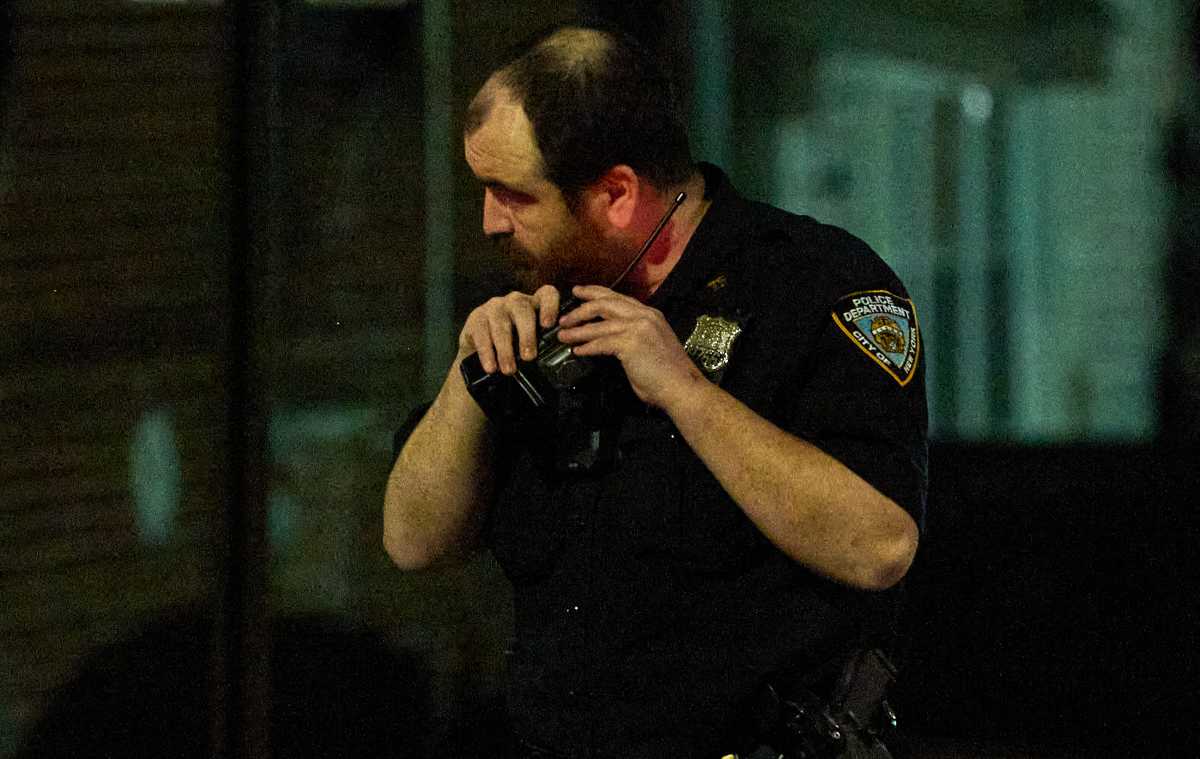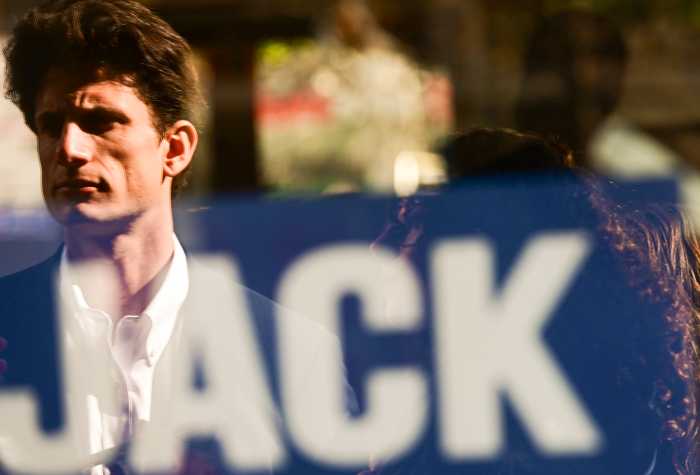For Brooklyn’s smaller arts organizations
these days, it’s come to don’t do or die.
While Brooklyn’s large cultural institutions still find themselves
struggling to compensate for financial losses in the wake of
Sept. 11 and the national recession, it is becoming clear that
for Brooklyn’s smaller arts groups, such as the Brooklyn Philharmonic
Orchestra and 651 Arts, the scarcity of funding has become a
life-or-death situation.
For these arts not-for-profits, whose mission it is to produce
public programs, not doing so would be catastrophic. And while
one might not think of the Brooklyn Philharmonic as a small organization,
it has neither an endowment nor its own performance space.
In December, the Philharmonic told GO Brooklyn that the most
important thing to them was to avoid compromising the integrity
of their programming, so they snipped away at their budget and
staff. But these internal stopgap measures couldn’t help to staunch
the ever-widening gap of lost funding.
The Philharmonic, which estimates they lost 25 percent of their
budget due to "cutbacks and decreased gifts in both the
public and private sectors," was forced to radically alter
their upcoming programs for Feb. 15 and Feb. 16.
Instead of listening to compositions by Milhaud and Copland performed
by the Philharmonic under the baton of guest conductor Grant
Llewellyn at the BAM Howard Gilman Opera House, Philharmonic
ticket holders will now be attending a piano recital by Stewart
Goodyear at the Baptist Temple Church, 360 Schermerhorn St. at
Third Avenue. [See related story]
The Philharmonic has also changed their published March concert
program. Instead of music director Robert Spano conducting the
Philharmonic and guest performers the New York City Gay Men’s
Chorus in a program of works by Sibelius, Magnus Lindberg and
Wagner, the Philharmonic will perform the original version of
the symphonic psalm "King David" by Arthur Honegger.
The event will still be held at the BAM.
"The savings by repositioning the February concerts and
altering the repertoire for March represents $250,000 in savings,"
said Philharmonic executive director Catherine Cahill, adding
that the number reflects "operational, marketing and artistic
savings on top of a season that’s already gone through administrative
layoffs, salary reductions and canceled plans to invest in critical
areas of media development and marketing initiatives."
While the Philharmonic kept its commitments to have concerts
on all previously announced dates, 651 Arts, one of America’s
foremost presenters of performing arts of the African Diaspora,
has postponed its entire season.
Scheduled to kick off this Friday, Feb. 15, the 13-year-old arts
organization is delaying its 2002 season due to "post-Sept.
11 circumstances," 651 Arts executive producer and president
Maurine Knighton told GO Brooklyn this week. Knighton estimates
651 Arts lost 20 percent of its budget since Sept. 11 and projects
an additional 10 percent loss for the rest of their fiscal year.
"We did not have the funds necessary to begin at our originally
scheduled time," said Knighton. "Not only did we change
the dates, but we undertook a number of steps to safeguard against
this situation in the future. We made additional cuts in our
own organization, pulling in outside resources to raise funds
needed."
"It’s important to know we had to make that difficult decision
to postpone, but we were able to turn it into an opportunity
to make connections with partners and to strengthen already existing
connections," said Knighton. "We are working aggressively
with management consultants C.W. Shaver & Co. And we received
[financial] support earlier today from Philip Morris Company,
and we’re extremely grateful to them.
"We are beginning to make up for that loss with help from
Philip Morris and BAM," said Knighton. 651 Arts performs
at BAM’s Harvey Theater on Fulton Street.
While the statement 651 Arts released says the rescheduled "projected
kickoff is May," it also has this caveat – "once the
necessary dollars are secured, 651 Arts’ 2002 season will commence."
Ripple effect
Coincidentally, both the Brooklyn Philharmonic and 651 Arts are
constituents of BAM, which means they do not pay BAM rental fees
in order to produce their shows there, explained BAM president
Karen Brooks Hopkins. But the alterations to the seasons of these
two organizations results in a ripple effect of lost funding
to its host organization, BAM.
"The whole thing is terrible," said Hopkins. "Now
we have dark nights we didn’t plan for. Our goal is to have the
lights on all the time. It’s very unfortunate not only for them,
but for the whole institution. On a night when everything would
be going, now it’s dark, resulting in less concessions, cafe
losses, less parking. The ripple effect is these cancellations
and postponements impact everything.
"[651 Arts and the Brooklyn Philharmonic] pay all the expenses,
the stagehands and box offices, but because of that special relationship,
not a rental fee," explained Hopkins. "But there were
other rental opportunities for those nights, and now we’ve lost
those rentals and the shows."
Hopkins estimates that depending on the vagaries of a production
and which theater was used, the potential revenues lost were
upwards of $40,000 per engagement.
"This makes us crazy, but not at them," said Hopkins.
"We feel bad for them. It’s not just the small organizations,
everyone is struggling. All we can do is pull together, keep
expenses low and try to not make any bad decisions to lose more
money."
Hopkins did say that organizations like 651 Arts and the Brooklyn
Philharmonic have a tougher time weathering downturns in the
economy because of their size.
"Because they’re small, they do not have as many alternatives,
such as board support or expense options for cutting," said
Hopkins. "They don’t have as many places to look for more
income or for savings.
"They’re doing the only thing they can do," said Hopkins.
"In not-for-profit, all you have are jobs and programs.
You’re not sitting around with a slush fund. You try to cut as
little of each as possible."
Knighton agrees that the postponement of 651 Arts’ schedule may
be the most prudent, cost-effective decision, but it is a blow
to Brooklyn and the larger New York community.
"We are not able to serve audiences we were created to serve,
not able to be the active partner in the community that we have
been over the years," she said. "But not only will
we be able to resume activities, we look to come out of this
stronger."
Hopkins feels 651 Arts and the Brooklyn Philharmonic are on the
right track.
"They’re trying to deal with the immediate problem, so they
will be back stronger and in better shape. They lose one weekend
to protect the future," she said.
Now the Philharmonic must face its subscribers and single ticket
holders who purchased tickets to the Feb. 15-16 shows, but will
instead be attending quite a different program, at another location.
Cahill said her organization came up with a list of ways to compensate
Philharmonic ticket holders who do not wish to attend the revised
program at the Baptist Temple Church: tickets can be donated
to the Philharmonic in advance of the performances as a tax deductible
contribution; tickets for the February concerts can be traded
for same-value tickets to the April concerts, which remain as
published; they can trade the value of their February tickets
for same-section seats for a concert in the 2002-2003 season,
not yet announced; or, finally, the Philharmonic will be prepared
to refund money if necessary.
"The difficult sacrifices we are making at this time, I
anticipate, will serve us in good stead," said Cahill.
While the current financial picture is bleak, donations will
help these not-for-profit arts organizations ride out the economic
downturn, said the organizations’ leaders. On Feb. 11, the Carnegie
Corporation announced grants to the Philharmonic, $75,000 and
BAM, $100,000.
For more information about schedule changes, or to donate, call
the Brooklyn Philharmonic Orchestra at (718) 622-5566, 651 Arts
at (718) 636-4181 ext. 2527 and the Brooklyn Academy of Music
at (718) 636-4194.

























